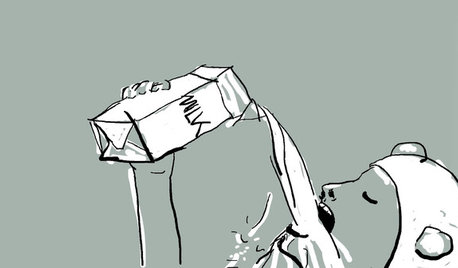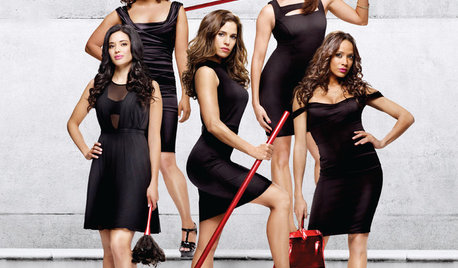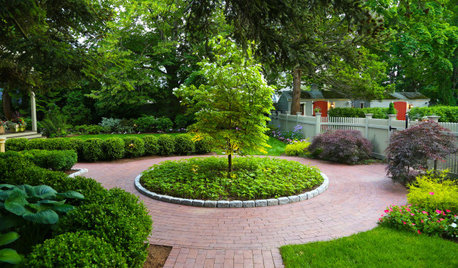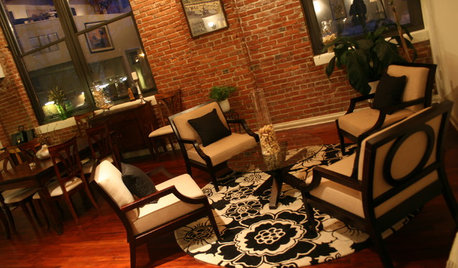What's your area of interest (if you have one) when you read?
lemonhead101
14 years ago
Related Stories

FUN HOUZZWhat You Do When There’s No One Around
Ice cream binges, air guitar concerts, napping in the closet. Houzzers worldwide disclose their quirky secret indulgences
Full Story
CONTRACTOR TIPSBuilding Permits: When a Permit Is Required and When It's Not
In this article, the first in a series exploring permit processes and requirements, learn why and when you might need one
Full Story
KITCHEN COUNTERTOPSWhen One Countertop Material Isn’t Enough
Combining counter materials in the kitchen can create a dramatic look, improve function and stretch the budget
Full Story
HOMES AROUND THE WORLDHouzz Tour: When Two Houses Are Better Than One
Subdividing a Melbourne backyard opens up space to build a second home on this family's property
Full Story
HOUSEKEEPINGWhen You Need Real Housekeeping Help
Which is scarier, Lifetime's 'Devious Maids' show or that area behind the toilet? If the toilet wins, you'll need these tips
Full Story
REMODELING GUIDESWhen to Use Engineered Wood Floors
See why an engineered wood floor could be your best choice (and no one will know but you)
Full Story
GARDENING GUIDESWhen and How to Plant a Tree, and Why You Should
Trees add beauty while benefiting the environment. Learn the right way to plant one
Full Story
REMODELING GUIDESHouse Planning: When You Want to Open Up a Space
With a pro's help, you may be able remove a load-bearing wall to turn two small rooms into one bigger one
Full Story
ENTERTAININGHow to Stay Sane When Hosting Christmas
We offer a dozen tips for getting organizing and enjoying the big day
Full StorySponsored




frances_md
carolyn_ky
Related Discussions
'What To Say When You Talk To Yourself'? - Have You Read It???
Q
When you're having one of those days...
Q
What's your one spendy food item that you just have to have in yo
Q
What do you eat on your salad when you eat one?
Q
annpan
friedag
woodnymph2_gw
kkay_md
phaedosia
balrog1954
georgia_peach
martin_z
Kath
twobigdogs
J C
woodnymph2_gw
veer
netla
lemonhead101Original Author
annpan
friedag
woodnymph2_gw
lemonhead101Original Author
balrog1954
sheriz6
annpan
rosefolly
woodnymph2_gw
sheriz6
Chris_in_the_Valley
martin_z
lemonhead101Original Author
jlsch
annpan
balrog1954
georgia_peach
martin_z
vtchewbecca
lemonhead101Original Author